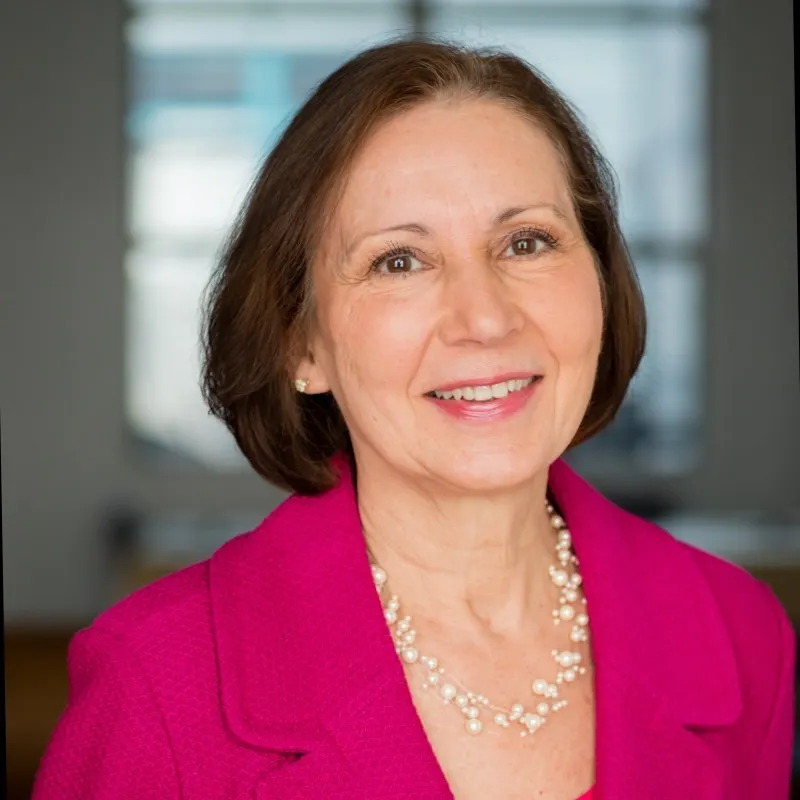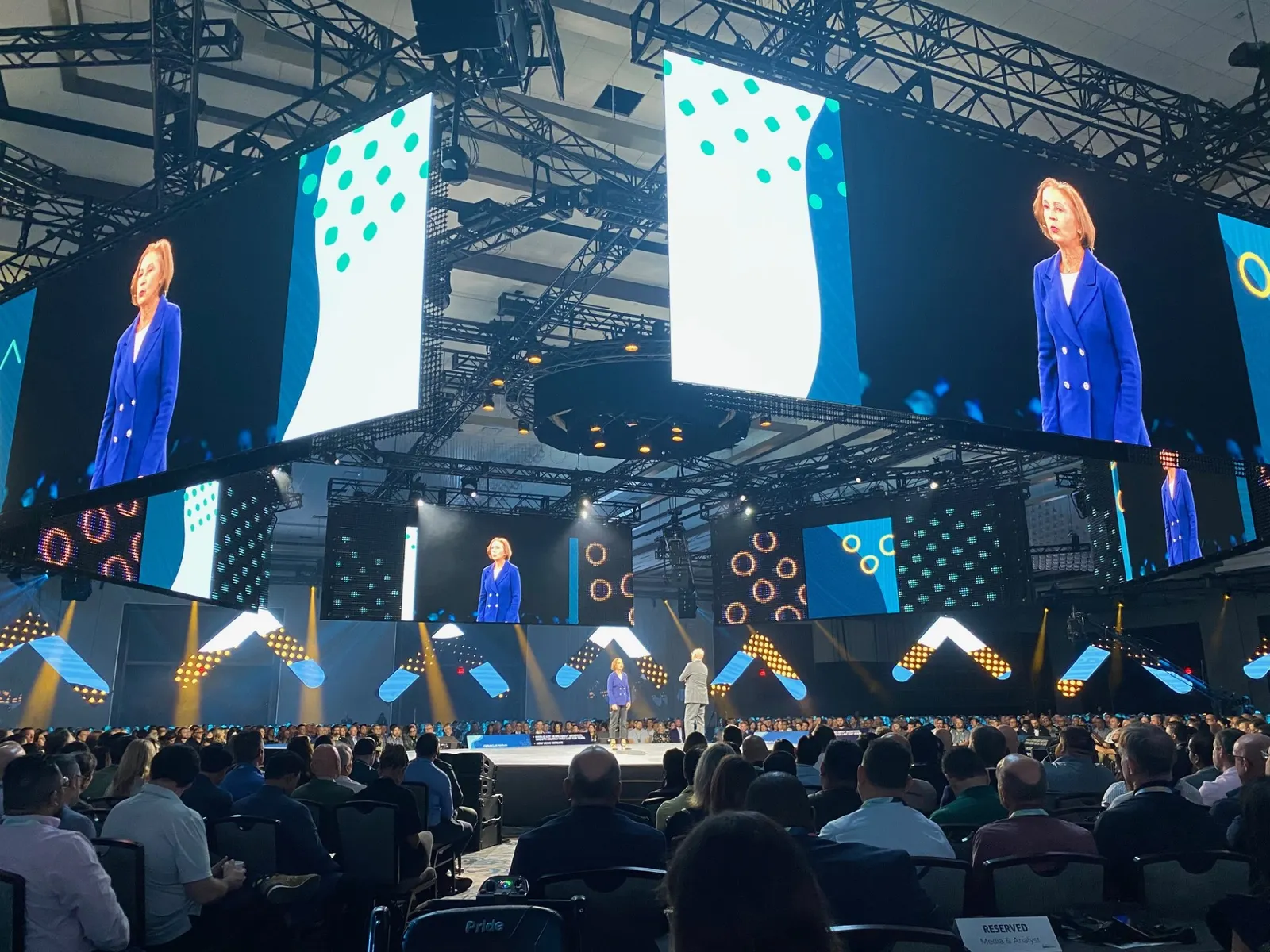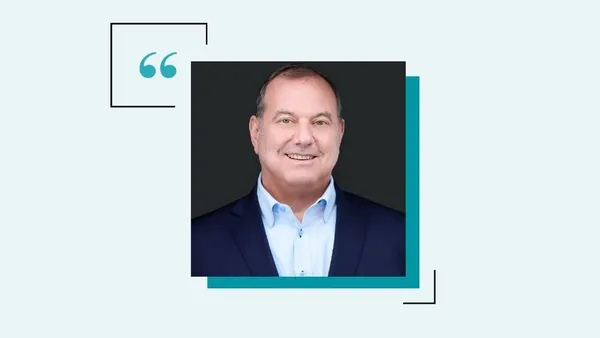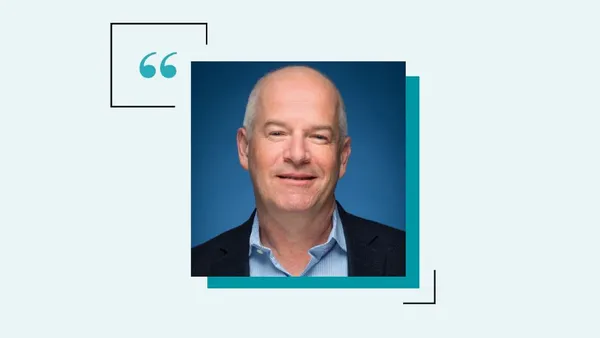CFOs increasingly have leaned into public speaking to improve themselves as leaders as well as increase corporate visibility. The process of preparing to speak in front of large audiences not only improves communication skills, but also provides opportunities to refine and better convey business narratives in front of audiences of investors, future partners, and other CFOs.
Natalie Laackman, CFO at MedSpeed, a medical courier services provider, and a keynote speaker at Oracle NetSuite’s recent SuiteWorld conference, finds that being able to precisely articulate the organization’s message to outside audiences brings exceptional value, externally and internally.

Natalie Laackman
CFO, MedSpeed
- First CFO position: 2009
- Notable previous companies:
- Sodexo
- Shamrock Foods
- Kellogg Company
This interview has been edited for brevity and clarity.
ADAM ZAKI: How does being a keynote speaker at events such as this help you be a better communicator and CFO?
NATALIE LAACKMAN: There are so many factors for CFOs to think about when working outside of our industry and outside of our comfort zone. One of them is the development of a presence on stage while trying to share a story and some insights.
I’ve had several people come up to me at this [SuiteWorld 2023] event, saying they connected with me in the past or went to business school with my CEO, connections I probably wouldn’t have otherwise made. Being present at events like this opens me up for other people to reach out to. It creates a way of connecting that doesn’t rely on social media.

What was your preparation like for your keynote, and what did you learn in the process?
LAACKMAN: I focused on developing an elevator pitch for my company. CFOs are strong with our technical competencies. We know our numbers and have our key metrics at our fingertips, but the preparation helps us to really be able to articulate what the business is doing and what our mission and strategy are.
Going to an event like this, and getting prepared, makes me realize I need to learn more outside of traditional finance to support the commercial part of the business.
It seems that just about every CFO is grappling with the talent shortage, particularly in finance and accounting. How are you adjusting to a limited labor pool?
LAACKMAN: We’re mid-size and growing, so we really focus on a warm welcoming culture as we get bigger. We’re trying to keep our employees engaged. We know we can’t compete with the big companies with the best compensation and benefit packages. We focus on giving an enriching experience — to all employees — but especially in finance. We’ve had employees leave and come back after eight weeks.
"Going to an event like [SuiteWorld], and getting prepared [to speak], makes me realize I need to learn more outside of traditional finance to support the commercial part of the business."

Natalie Laackman
CFO, MedSpeed
I think CFOs have to be mindful that the motivations we had early in our careers may not be the same for the next generation. So, we have to adjust the way we do some things, like the way we qualify and hire our young finance talent.
I’ll give you an example.
We had one accountant that we hired who just had his associate degree, but knew he was going to get his bachelor's. So, we hired him, and he’s been on board for about a year, and he is doing accounting for us while he is taking courses. He’s caught on, and his commitment to learning and energy level has been above and beyond what we expected.
These are the kinds of changes we are making to recruit and retain the best talent, identifying it early and giving opportunities.
Have your thoughts on remote work and work/life balance changed over the past year?
LAACKMAN: Yes. I believe there’s a nice hybrid balance; I just don’t know what that is yet.
My leadership team and I recognize the benefits of collaboration in person, but we also know we can’t ask all of our people to come back to the office. We employ drivers around the clock, positions that cannot be remote.
So, there is this view that corporate and support staff are special because they can work remotely, so we have to be mindful of that too.
"I think CFOs have to be mindful that the motivations we had early in our careers may not be the same for the next generation."

Natalie Laackman
CFO, MedSpeed
We also know employees are raising families, and maybe trying to buy their first house during this economic situation. I don’t want my people to have to go through what I did early in my career — traveling the world, never home, never allowed to take vacation. There needs to be a balance.
So, our approach is about making it a better experience. One that enriches the employee, the community, and the quality of family. And that's what we're all trying to accomplish.
You mentioned in your keynote that customers are demanding you carry out sustainable initiatives to earn their business. What approach are you taking in response to ESG demands?
LAACKMAN: They’re writing this stuff into our contracts. A large amount of emissions come out of the healthcare system, so customers are focused on making sure we’re making efforts to be sustainable. A couple of vendors have written into three- or five-year renewal contracts the exact number or percentage of our vehicles that must be electric.
I met with Mary Barra, the CEO of General Motors. She wanted to meet with me to talk about GM’s electric strategy and how to make it viable for commercial companies. And, based on our conversation, we ordered another forty vehicles.
We’re tracking the idea of the total cost of ownership. Electric vehicles cost a little more upfront, so it’s about building those metrics and their credibility to track these things. With this, we’re putting in charging stations and electrifying our fleet.
I tell people all the time; I’m a CFO, and I know more about watts and amps and direct charges than I ever thought I would.













